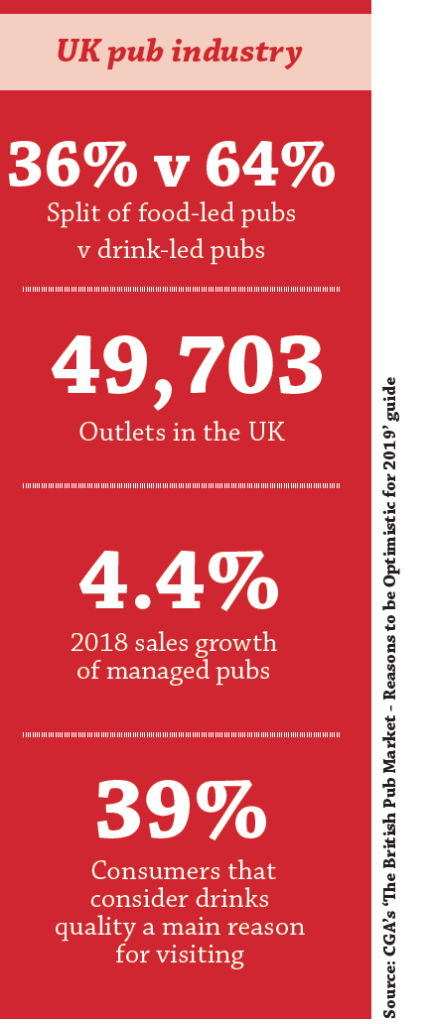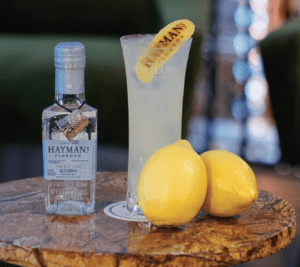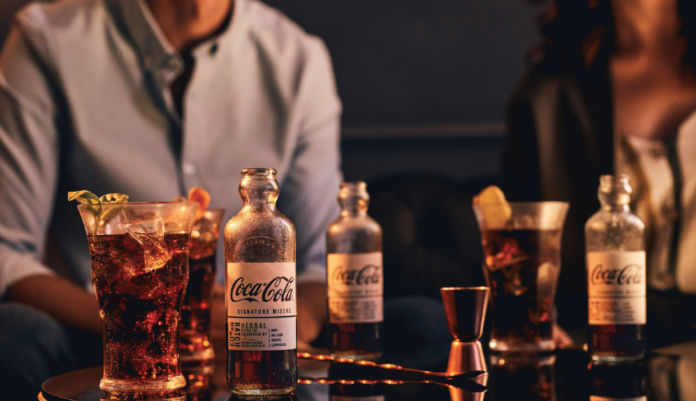Paul Hill looks into the UK pubs sector and its everchanging relationship with the wholesale channel
Last Christmas saw the renaissance of wet-led pubs, with an 8.3% sales increase, as premiumisation enticed consumers back to their local public houses. MCA’s recent findings back this up, with the pub market outperforming its eating-out counterpart by 1.9%.
 “Driven by quality, experience and localisation, consumers are reappraising pubs,” director of consumer insight at MCA Gareth Nash explains. “Craft-led food and drink is also a trend in pubs along with broadening demographics, as the appeal of pubs grows among younger consumers, women and the more affluent.”
“Driven by quality, experience and localisation, consumers are reappraising pubs,” director of consumer insight at MCA Gareth Nash explains. “Craft-led food and drink is also a trend in pubs along with broadening demographics, as the appeal of pubs grows among younger consumers, women and the more affluent.”
Last Christmas saw the renaissance of wet-led pubs, with an 8.3% sales increase, as premiumisation enticed consumers back to their local public houses. MCA’s recent findings back this up, with the pub market outperforming its eating-out counterpart by 1.9%.
“Driven by quality, experience and localisation, consumers are reappraising pubs,” director of consumer insight at MCA Gareth Nash explains. “Craft-led food and drink is also a trend in pubs along with broadening demographics, as the appeal of pubs grows among younger consumers, women and the more affluent.”
Pernod Ricard has responded to this growth with a £5m marketing investment scheduled for the run-up to the festive season. On-trade channel director James Bremner says: “2018 was a good year for the on-trade. However, we anticipate outlets will need to work harder this year to maintain sales and value growth. Our mission is to support our customers to offer a quality premium drinks experience that will encourage people to come back to their outlet, stay longer and spend more.”
This is all great news for the wholesale channel, with industry expert David Gilroy pointing out that, in terms of service, much has changed over the years. “Both tied pubs and free houses relied on their weekly delivery from the wholesaler. This was not efficient or responsive to the trade. As tied establishments have declined, an increasing number of pubs are now able to shop around and frequently buy on top-up towards the end of the week,” he says.
“Booker Wholesale in particular has targeted this business successfully for many years and prospered. They actually stock a range of keg beers in most of their depots specifically for top-up business. Wholesalers now need to be offering flexible deliveries and shorter lead times with online and app ordering options. The once-a-week delivery service is just no longer viable.”

“From a wholesale point of view, the challenge is the shifting consumer expectation,” Ed Bedington, editor of The Morning Advertiser, says. “The general trend towards premiumisation doesn’t sit well with the volume sector. However, the street food excitement is something the channel could exploit, offering solid solutions for pub operators looking to emulate those kinds of products and offers from their pub kitchens.”
Coca-Cola European Partners has recognised the potential of the growing pub market, recently unveiling its entry into the premium spirits sector, with the launch of Coca-Cola Signature Mixers – a range of four specially crafted drinks, designed to be mixed with premium dark spirits. They are already available to foodservice wholesalers.
Parfetts has also relaunched its on-trade range, which will offer an expanded selection of seasonal deals on wines, beers, spirits and mixers. The new service will operate under The Local brand and will provide exclusive catering deals.
Changing expectations
David King, marketing manager for Bidfood UK, believes the rise of premiumisation in the pub sector is a trend that will continue to grow. “Since the boom in gastro pubs, consumers are now looking for better-quality food, even in the most standard of venues. Interestingly, this isn’t a trend driven by age, but by attitude.
From what we’ve seen, consumers in general are willing to spend more per head on their dining experience. However, they are also eating out less, so when they do go out, they want to have a quality experience,” he explains.

“It is hugely competitive out there, but by combining creative menus with affordable ingredients the pub industry is thriving. The best are thinking not just about the food offering, but about the broader experience including cocktails, seating, ambience and the vessel that you receive your meal on. The British public love a good pub, so this extra effort is often rewarded with loyal customers.”
Caterforce’s purchasing director, Gary Mullineux, believes customers are looking for more quality products and healthier options on pub menus, too. “We’ve seen several trends recently that definitely have an impact on the pub sector, such as veganism and sustainability,” he explains.
“This also means that consumers are paying much more attention to health, wellness and a cleaner lifestyle, which has had a major impact on pub foodservice offerings. People want to see menus that use healthier ingredients, lower the amount of salt, sugar and fat, and incorporate plant-based diets.”
The rise in food delivery is a surprising and fairly recent development that shifts the actual definition of what a pub is. Birchall Foodservice is just one wholesaler attempting to make the most of it, according to the brand’s marketing coordinator, Joe Moulton. “If you went back five years, the idea of pubs delivering food to your home would sound crazy,” he says. “But it’s commonplace for many of them to offer this service now.
“It’s no secret that many people are now choosing to drink at home rather than the pub, so food delivery is the perfect solution to target this demographic. I also think the growing influence and popularity of Just Eat and Uber Eats has made it much easier for pubs to offer a delivery service, which benefits us.”
Creative Foods Europe marketing director Nigel Parkes agrees: “Wholesalers are increasingly aware of the importance of food to the pub sector. Not just food, but high-quality food. They must offer choice and innovation and be up to speed with food and flavour trends such as the current interest in vegan, vegetarian and flexitarian diets as well as the growing popularity of chilli-based flavours.”
The B word
For all of these positive advancements, you can’t look into any UK-based topic right now and not discuss Brexit. The B word has already led to the closure of some independent pubs, according to Parkes. “As well as closures, another issue is the technical and legislative regulation changes. The wholesaler must provide accurate advice to their pub customers about all the products they supply and this is particularly relevant at the moment,” he says.
Getting new on-trend ideas in front of pub customers in a timely fashion is another concern for foodservice wholesalers. It’s the reason why so many businesses are embracing technological changes such as online sales and marketing platforms. “Digital frameworks such as these mean we can promote the latest trends to our pub customers without having to wait for the next print run,” explains Kelly Williams, group sales and marketing director for Savona Foodservice.
However, it’s not all done online. “We do also arrange periodic opportunities for the pub groups to see new products by way of supplier presentation days and ad-hoc supplier demonstrations at their premises,” she adds. “When we rolled out our online platform, we discontinued our main catalogue. But we know there is still a place for paper-based catalogues, so we now produce quarterly mini-guides.”
Moulton echoes this and believes that generational preferences and changes to eating and drinking habits are the biggest issues facing foodservice and pubs right now. “Many millennials see pubs as an unhealthy place to socialise. This is why a lot of pubs are making efforts to enhance their menus with heathier and lighter options, as well as offering a wider range of non-alcoholic drinks, such as coffee and mocktails.”
Caterforce’s Mullineux adds: “Pub menus need to address customer needs, without it having a significant impact on profit margins and quality of products they use. This places a greater emphasis on chefs to be more innovative with their ingredients, and the use of good-value quality ranges.”
Future-proofing
The buying group’s purchasing director also believes that wholesalers need to evolve their businesses in order to adapt to the changing landscape of the pub sector. “This is why innovation within the industry is so important,” he adds. “At Caterforce, we constantly monitor the marketplace, as our members work alongside their customers to understand what consumers want from this changing landscape.”
Mullineux says they analyse data and review sector growth in specific institutions, such as pubs, to help identify opportunities. “Food is growing in prominence alongside alcohol within the pub sector, so having a menu that offers variety and quality is just as important as the range of drinks behind the bar,” he explains.
“The pub sector is a constantly chan-ging landscape, so it’s hugely important for wholesalers to future-proof them-selves against these changes,” adds Birchall’s Moulton.
“Wholesalers should invest more time and money in younger people. Generation Z and millennials are shaping the face of the pub industry, so it’s important to employ young people who understand these groups and their attitudes to pubs and socialising,” he advises.
In order to ride the current wave of growth, wholesalers are now required to be adaptable. If they manage to do this and acclimatise to evolving consumer drink preferences and product quality, then it’ll open up a whole new window of opportunity.
Trends
Growth in premiumisation and provenance
Broadening of various demographics
Demand for more of an overall experience
The rise in food delivery through apps
Challenges
Rising headwinds such as business rates
Declining alcohol consumption due to healthier behaviours
Falling food-led visits to pubs
Uncertainty about Brexit








